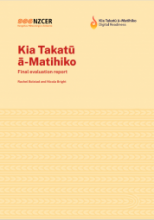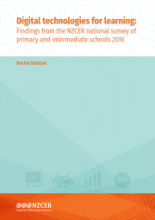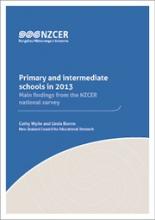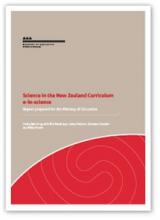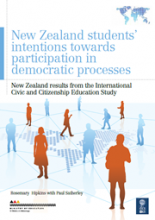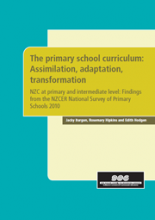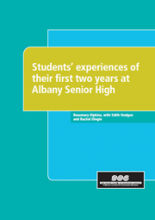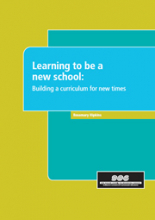NZCER's Implementing New Zealand Curriculum work
You are here
Implementing New Zealand Curriculum
Recent Implementing New Zealand Curriculum research publications
This report presents the findings from a research project on curriculum integration in New Zealand schools, carried out by NZCER in 2018–19.
This is a comprehensive picture of the current experiences and challenges for secondary schools in New Zealand. It presents the findings from NZCER's national survey of secondary schools, conducted in July and August 2015. It includes the perspectives of principals, teachers, parents and board of trustee members on a wide range of issues.
This 2015 report updates the findings from a large multi-method study of environmental education in New Zealand schools, done in 2002-2004. The update report will be of interest to schools and environmental education providers and stakeholders who support schools.
What are New Zealand secondary students' experiences with money and financial products, and how do they behave towards money? This research report also looks at what schools offer in terms of financial literacy programmes and any barriers to the implementation of financial literacy teaching. The research was commissioned by the Commission for Financial Capability (previously the Commission for Financial Literacy and Retirement Income).
This report explores teachers' practice and thinking about one of the eight principles in the New Zealand Curriculum, learning to learn. It draws on data from teachers' responses to NZCER's 2012 National Survey of Secondary Schools.
This report presents the main findings from the NZCER national survey of primary and intermediate schools, which was conducted in July and August, 2013.
This report discusses the impact of NCEA on schools' and teachers' thinking about curriculum. It was funded from NZCER's purchase agreement with the Ministry of Education and is intended to draw on and contribute to NZCER's ongoing NCEA-related research. It explores how innovative teachers and schools think about and enact curriculum change enabled by NCEA.
This report analyses findings from the International Civic and Citizenship Education Study (ICCS), which was undertaken in New Zealand in 2008, around the time of the general election. It explores how students perceive responsible adult citizenship and looks at their current interests and abilities. The students were also asked to look to their futures and say which of a range of social and political activities they will be most likely to do, or not do when they are adults.
The latest report from the NZCER national survey series looks at how the New Zealand Curriculum (NZC) is being implemented in the country's primary and intermediate schools. The primary school curriculum: Assimilation, adaptation, transformation draws on data from our 2010 survey to explore differences across the sector in terms of progress on curriclum implementation, three years on from the publication of the NZC in 2007. Issues covered in the report include: how confident principals and teachers are with the curriculum, which aspects they view as most important, the professional learning teachers are doing and the challenges of creating a curriculum to meet the learning needs of all students.
Albany Senior High School (ASHS) is a new senior secondary school intent on developing a curriculum for the 21st century. At the end of 2009 and 2010, its first two years of existence, it surveyed students on the learning approaches at the school. In this report, NZCER analysed the responses.
This report documents the beginnings of a new senior secondary school, set up with the aim of doing things differently for the 21st century. It discusses four key aspects of curriculum innovation at the school and explores its approach to learning and problem-solving through the lens of complexity theory.
This interim research report provides examples of how some schools have approached the revised curriculum and the Key Competencies, and discusses the processes, tensions, and opportunities of leading and managing curriculum change.
This research report provides examples of how some schools have approached the revised curriculum and the Key Competencies, and discusses the processes, tensions, and opportunities of leading and managing curriculum change.
This paper discusses the possible purposes for assessing the Key Competencies, and the assessment approaches that fit with these purposes.





